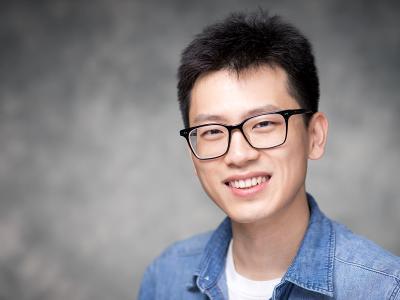

A core ethos of HKUST is training its graduates to use what they have learned at university to deliver a real, lasting impact on society, and Sherlock Huang truly exemplifies this spirit. A holder of two degrees from HKUST, Sherlock is now a Senior Software Engineer at technology titan Microsoft, a remarkable feat for a young man who had just graduated five years ago.
For ages, doctors and scientists have sought untold number of remedies and treatment to help the blind; according to the World Health Organization, approximately 36 million people worldwide are blind, meaning their visual acuity is worse than 3/60. Humans rely on sight to acquire most of the data we receive from the world, and anything that can alleviate blindness is undeniably a game changer for those who can’t see.
Enter the Seeing AI app from Microsoft. Sherlock is part of the team that has developed this life-altering software that has its beginnings in the 2015 Hackathon, a global competition that involved more than 13,000 participants. Sherlock’s project, formally dubbed “Deep Vision,” won multiple awards at the 2015 contest, and subsequently finished in the top 3 during the following two Hackathons. The HKUST graduate began working in the Redmond company as an AI specialist that worked to make this technology more accessible to the masses—Sherlock has accomplished this goal with aplomb.
How does the Seeing AI app work? With the help of a smartphone camera, this app transforms the world around us into an audible experience; in other words, the app voices out what it is seeing to its users. For illustration, this app can read aloud text it sees, and describe the physical environment around it. With the help of barcodes, it can also provide information about particular objects.
Since its deployment, the blind and visually impaired have given high marks for Seeing AI. These are just a few of the words of gratitude Sherlock and his Microsoft team have received from users: “For the first time in 15 years, I read a Christmas card.” “Thank you for giving my independence back.”
It doesn’t get better than this for an HKUST graduate who wanted to use his considerable talent to make a difference in the world. In this case, potentially for over 30 million people. Sherlock and his team are now working on another exciting project that can—once again—produce a game-changer: a self-driving wheelchair designed for indoor environments such as airports.

